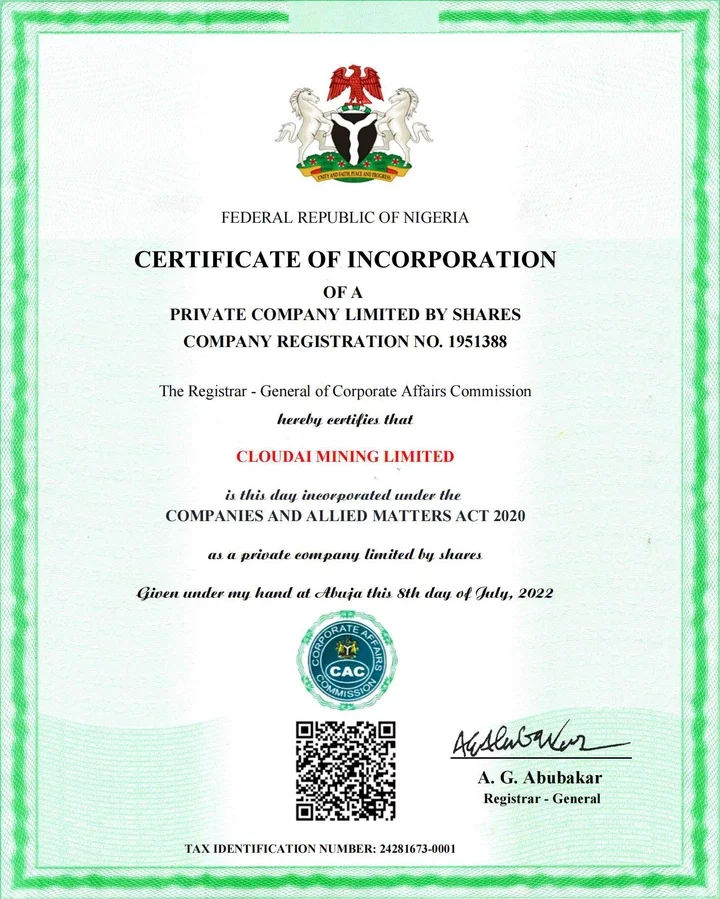
In the complex world of business, you've likely encountered the term "firm" numerous times. But have you ever paused to consider its precise meaning? Understanding what constitutes a firm is crucial for anyone navigating the corporate landscape. Whether you're an aspiring entrepreneur, a seasoned business professional, or simply curious about economic structures, grasping this concept is essential. In this article, you'll explore the definition of a firm, its various forms, and its role in the broader economic ecosystem. By the end, you'll have a clear understanding of what a firm truly is and why it matters in the business world.
Defining a Firm
A firm is a business organization that operates with the goal of generating profit through the production or sale of goods and services. You can think of it as an entity that combines resources like labor, capital, and technology to create value. Firms come in various sizes, from small sole proprietorships to large multinational corporations. They play a crucial role in the economy by providing employment, driving innovation, and meeting consumer needs. Understanding the concept of a firm is essential for grasping the fundamentals of business operations and economic systems.
What is a Firm in Business?
In business terminology, a firm refers to an organization or enterprise engaged in commercial, industrial, or professional activities. You can think of a firm as an entity that combines resources to produce goods or services for profit. It's important to note that firms can take various legal forms, such as sole proprietorships, partnerships, or corporations. These entities operate within specific markets, making strategic decisions to achieve their goals and compete effectively. Understanding the concept of a firm is crucial for grasping broader economic principles and business operations.
What Is the Purpose of a Firm?
The primary purpose of a firm is to create value and generate profits for its owners or shareholders. You'll find that firms aim to efficiently produce goods or services that meet market demands. They strive to maximize resources, minimize costs, and increase productivity. Firms also serve as economic engines, creating jobs and contributing to overall economic growth. Additionally, they often drive innovation, develop new technologies, and respond to changing consumer needs. Ultimately, a firm's purpose extends beyond profit-making to include societal contributions and stakeholder satisfaction.
How do Firms Work?
Firms operate by combining various resources to produce goods or services. You'll find that they typically have a hierarchical structure, with management overseeing different departments. These departments work together to achieve the firm's objectives, whether it's maximizing profits or fulfilling a specific mission. Firms also interact with external stakeholders, such as suppliers, customers, and regulators. They must adapt to market conditions, innovate to stay competitive and manage finances effectively. Understanding these dynamics is crucial for anyone looking to comprehend the inner workings of businesses in today's complex economic landscape.
Theory of the Firm
The Theory of the Firm seeks to elucidate why companies exist and how they make decisions. You'll find that it examines the nature of firms, their boundaries, and internal structures. This theory posits that firms emerge to minimize transaction costs and maximize efficiency. You should understand that it explores concepts like vertical integration, agency relationships, and the allocation of resources within organizations. The theory helps explain how firms determine their size, scope, and organizational structure to optimize performance in the market.
Types of Firms
You'll encounter various types of firms in the business world. Sole proprietorships are owned and operated by one individual, offering simplicity and full control. Partnerships involve two or more owners sharing responsibilities and profits. Corporations are separate legal entities, providing limited liability to shareholders. Financial cooperatives, such as credit unions, are member-owned institutions focusing on serving their members' financial needs. Each type has unique characteristics, advantages, and challenges that you should consider when starting or analyzing a business.
Sole Proprietorships
A sole proprietorship is the simplest and most common form of business structure. As a sole proprietor, you have complete control over your business operations and finances. You'll be personally responsible for all debts and liabilities, but you'll also reap all the profits. This business type offers flexibility and ease of setup, with minimal paperwork required. However, it's important to note that you and your business are considered one entity, which can pose risks to your personal assets.
Partnership
A partnership is a business structure where two or more individuals share ownership and responsibilities. You'll find that partnerships offer flexibility in management and profit-sharing. In this arrangement, you and your partners contribute resources, skills, and capital to the business. You'll also share in the profits and losses. Partnerships can be general, limited, or limited liability, each with distinct characteristics. While offering advantages like shared decision-making and pooled expertise, you should be aware that partnerships also come with potential challenges, such as shared liabilities and potential conflicts between partners.
Corporation
A corporation is a legal entity separate from its owners, providing limited liability protection. You'll find that corporations can issue stock, have shareholders, and are subject to more regulations than other business structures. Corporations offer advantages like easier capital raising and potential tax benefits. However, you should be aware of the complexities involved, including double taxation and increased paperwork. Understanding the intricacies of corporate structure is crucial for anyone considering this business form.
Co-operative
A cooperative is a business model where members collectively own and operate the enterprise. You'll find that co-operatives are democratically controlled, with each member having an equal say in decision-making. These organizations prioritize meeting the needs of their members rather than maximizing profits. Co-operatives often emerge in various sectors, including agriculture, retail, and housing. You'll notice that they emphasize principles such as voluntary membership, economic participation, and concern for the community. This structure fosters a sense of shared responsibility and mutual benefit among its members.
Key Characteristics of a Firm
A firm in business typically exhibits some key characteristics. These include:
Legal entity: Recognized by law
Profit motive: Aims to generate returns
Economic activity: Produces goods or services
Risk-bearing: Faces market uncertainties
Decision-making: Has a management structure
Resource allocation: Manages assets efficiently
Continuity: Operates with long-term goals
Social responsibility: Considers stakeholder interests
Each trait contributes to a firm's identity and operations in the business world. You'll also find that firms are customer-focused, competitive, and adaptable to market changes.
Activities of a Firm
A firm's activities can be categorized into three main areas: operating, investing, and financing. Operating activities involve day-to-day business operations, such as producing goods or providing services. Investing activities include purchasing or selling long-term assets. Financing activities encompass obtaining and repaying capital, like issuing stocks or bonds. These activities collectively define how a firm generates revenue, manages resources, and secures funding to sustain and grow its business operations.
Resources Used by Firms
Firms utilize various resources to operate effectively. These include:
Human Capital: Your workforce's skills and expertise.
Financial Capital: Funds used for operations and investments.
Physical Assets: Tangible resources like equipment and facilities.
Intellectual Property: Your patents, trademarks, and copyrights.
Natural Resources: Raw materials used in production processes.
Technological Resources: Software, hardware, and digital infrastructure.
Social Capital: Your network of relationships and partnerships.
Each resource plays a crucial role in your firm's success and competitive advantage.
How to Start a Firm?
Ready to start your own firm? Here's a quick guide:
Choose your niche: Pick a field you're passionate about.
Create a business plan: Outline your goals and strategies. Outline your firm's mission, target market, services, and financial projections. This document will serve as your roadmap and is crucial for securing funding.
Register your business: Make it official with proper paperwork. Choose a business structure (e.g., LLC, corporation) and register with appropriate authorities. Obtain necessary licenses and permits specific to your industry and location.
Secure funding: Explore financing options such as loans, investors, or personal savings. Ensure you have sufficient capital to cover startup costs and initial operating expenses.
Set up shop: Find a location and necessary equipment.
Build your team: Hire talented folks to help you grow.
Market your services: Get the word out about your awesome firm!
Remember, starting a firm takes time and effort, but it's totally worth it!
Why Is a Business Sometimes Called a Firm?
You may hear a business referred to as a "firm" due to its historical and legal connotations. The term originates from the Latin word "firmare," meaning to confirm or strengthen. In a business context, it implies a stable, established entity. Legally, "firm" often denotes a partnership or professional organization, such as law or accounting practices. Today, it's commonly used interchangeably with "company" or "business," particularly for larger, more established enterprises or those providing professional services.
What is the difference between a firm and a company?
While often used interchangeably, firms and companies have subtle distinctions. A firm typically refers to a professional services partnership, such as law or accounting practices. Companies, however, are broader business entities that can encompass various structures. Firms usually have partners, while companies have shareholders. Firms tend to be smaller and more specialized, whereas companies can be large-scale operations. The term "firm" often implies a more personal touch, while "company" suggests a more corporate atmosphere. Legal structures vary: firms can be LLPs, and companies are often corporations. Firms may emphasize personal relationships, while companies might be more formal. Finally, profit distribution methods, ownership models, and regulatory requirements may also differ between firms and companies.
Frequently Asked Questions
Do you have questions about firms? We've got answers! Here are some common queries:
Can a single person be a firm?
Sole proprietorships are considered firms, too. It's all about offering goods or services, regardless of size.
Do all firms make a profit?
Not necessarily. Some firms, like non-profits, focus on other goals. But most businesses aim to turn a profit to stay afloat.
How big can a firm be?
From solo practitioners to global giants, firms come in all sizes.
Are all businesses considered firms?
Not quite. While all firms are businesses, not all businesses are firms.
Conclusion
So there you have it, the lowdown on what a firm is in the business world. Whether it's a tiny startup or a massive corporation, firms are the building blocks of our economy. Next time you're out shopping or scrolling through job listings, you'll have a better understanding of the organizations behind it all. Remember, firms come in all shapes and sizes, but they all have that common goal of turning a profit. Now that you're in the know, maybe you'll look at businesses a little differently. Who knows, you might even be inspired to start a firm of your own someday!
















Comments